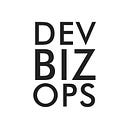How To Ask Great Questions
There was a song by 80’s band the Pixies that had this intriguing line that went like this (condensed for simplicity): if man is five, then the devil is six, then God is seven.
It’s a quirky play on Biblical numerology and man’s place in the universe. If I could travel back in time though, I would convince Frank Black to add “if the dog is four”. Maybe it would not be a great lyric, but it would make the point that the number four is just as important, and that dogs are awesome.
The number four shows up often in things that guide us. There are the four directions, four seasons, four elements of nature, and the four stages of competence.
Regarding the last one, if you have actively acquired any skill, you know that our ability to learn exhibits four stages as described below:
- Unconscious incompetence — You do not understand or know how to do something and do not necessarily recognize your lack of skill and may even deny the usefulness of the skill thus leading to reckless activity and negative results.
- Conscious incompetence — You do understand or know how to do something, but you recognize your lack of skill, as well as the value of a new skill in addressing the deficit and that making mistakes is integral to the learning process.
- Conscious competence — You understand or know how to do something however demonstrating the skill or knowledge requires concentration, requiring the skill to be broken down into steps where conscious involvement is involved.
- Unconscious competence — You have had so much practice with a skill that it has become “second nature” to the point that it can be performed easily and confidently taught to others.
I see these stages play out in online communities every day. Beginners struggle to gain traction, stumble a lot, make mistakes, piss off other users, and can end up taking abuse from other users.
Stack Overflow is a perfect example. The site that was built for the world’s developers is often overwhelming to beginners. They struggle to post questions, do not have enough reputation to fully participate, and generally feel shutout. On the other hand there are experts like Jon Skeet that are like encyclopedias of knowledge and seem to effortlessly craft amazingly rich answers to questions.
This leads to a conundrum. The users that have the most skill and experience, the unconscious competent, are most adept at using Stack Overflow even though they have the least need for it. At the same time, the beginners that need Stack Overflow the most flounder trying to get the help they need.
Stack Overflow has done work to make the site more welcoming to new users and students. Part of this effort involved changes to the site itself like the Ask a Question Wizard while other efforts involved shifting the culture and behavior on the site starting with a new Code of Conduct.
But ultimately it comes down to users and their ability to pose thoughtful and well-composed questions that others can understand. This is not just about being able to successfully post a question on Stack Overflow. It is about the very essence of learning.
A mentor of mine once said the following in my early programming days:
If you cannot ask a proper question, how will you possibly understand the answer?
Questions are the backbone of learning, going back to the days of Socrates and his Socratic Method. The idea is that through questions, we gain critical thinking skills by applying logic and reasoning. We can begin to see the flaws in our thinking and adjust our arguments accordingly.
In a sense, you can view Stack Overflow as the Socratic Method in action. Since the nature of the content is technical, it lends itself to objective answers. However this leads to a chicken and egg problem. How does one ask useful questions that lead to objective answers if you are still wallowing in the “incompetent” stage of your learning journey?
We need a thoughtful approach to crafting well-composed questions. Surprisingly this is not a critical skill that is specifically taught in schools. I realized this when I started building internal online communities for teams. The participation rates seemed low and the most common reason given was that people were hesitant to post is because they wanted to avoid asking “stupid questions”.
To address this concern, I put together a presentation and talk that I deliver to technical teams. It’s called “How to Ask a Great Technical Question” and you are free to view and download for yourself. If you just want the TLDR version, here are three quick tips:
- Ask the question out loud to yourself
- Do some preliminary research
- Write clear titles stating deviation from expected result
- Bonus tip: end your question with a question mark!
What tips do you have for asking useful questions? Was there anything you did that helped you learn more quickly and gain competent faster?
How many spaces should come after a period/full stop?
Ok, maybe I need to stop using two spaces after a period…
We help IT leaders in enterprises solve the cultural challenges involved in digital transformation and move towards a community based culture that delivers innovation and customer value faster. Learn more about our work here.
